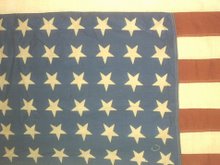WHAT WAS RATIONED DURING WORLD WAR II?
Answer
Note. There were differences in rationing between the various countries in the war, and variations over time. In addition to rationing by coupon, some products were simply not available for civilian use (for example nylon), and others were often hard to find (for example, photographic film and good quality paper).
Answer
Many things were rationed. Foodstuffs like bananas were scarce and many things including sugar, meat, butter, cheese, eggs, milk, tea, chocolate, clothes, fuel oil, rubber, typewriters, cooking oil and many other things were rationed. This happened because the Nazis were sinking ships importing these foods and materials.
Answer
Nearly all food products were rationed. Cloth, wood and metal, as well as rubber and leather, were all rationed so that the armed forces would have enough for their needs.
Gasoline, oil and grease, as well as kerosene and industrial alcohol, and ink. Paper, carbon paper, pencils, pens and typewriter ribbons, as well as erasors and paperclips and envelopes.
Automobile tires, parts and belts were all unavailable during the war, as the factories were sending all their production to the military's needs. Nylon and silk were used for parachutes, not women's stockings.
Answer
Rationed items: gasoline, tires (or just impossible to get?), sugar, coffee, shoes, meats hard or impossible to get: chocolate, nylons, butter, some spices, cheese, cigarettes, candy bars, things containing rubber, sheets and pillow cases, linens (used flour sacks in place of dish towels).
Answer
Tires and fuel for sure. However many things were just not made as U.S companies were told what to make. For example, Studebaker made trucks, Ford made jeeps and liberty ships and so on. So rationing was twofold with entire types of manufacturing shifted to war production.
Answer
It varied from country to country and from year to year and even from month to month - and sometimes even from week to week. Most countries continued rationing for a time after the end of WWII. In Britain, for example, even bread (!) was rationed for a while in 1946-47.
Things in short supply throughout WWII in most countries included foodstuffs (especially animal products, ranging from milk to meat) and also oil.
Answer
In Great Britain, the weekly ration per person got smaller and smaller as the war dragged on in to its second and third years. Almost every type of food was rationed; some things were simply not available, like oranges and bananas. Eggs were scare and sugar was limited to one ounce a week, per person. Powdered milk and eggs were the usual things for breakfast.
Clothing was rationed, so were paper, ink and soap. Gasoline was limited to those who had a job that was essential to the war effort. Most people parked their car for the duration of the war. Coal and oil was severely rationed in Great Britain, as was all most everythinh else.
WHY?
Because so many things had to be brought to the UK by a ship, and the German U-boats were sinking many of them as they crossed the Atlantic Ocean from North America. In order to send much-needed supplies to Great Britain, people in Canada and the USA had to give up SOME of what they were used to, but the rationing here was no where as bad as it was in Great Britain.
An entire generation of British kids grew up undersized and sickly due to a lack of vitamins during their first few years of life during the war years.
Answer
Actually, great efforts were made in Britain to ensure as far as possible that the next generation did not grow up 'undersized and sickly'. In my schooldays we were given milk and A and D vitamins every day at school, and sometimes further supplements. We also ate a higher proportion of vegetables than was usual before or after rationing.
Take a look at Britons born between about 1935 and 1947 and see if they show any obvious signs of being stunted. :)
In Britain rationing continued till 1954, though clothing was taking off rationing in 1949 and bread was rationed for only about 12 months in 1946-47.
THE PUBLIC READER
11 years ago




No comments:
Post a Comment